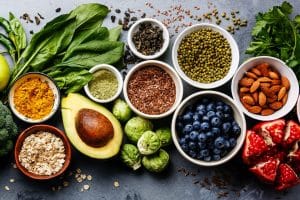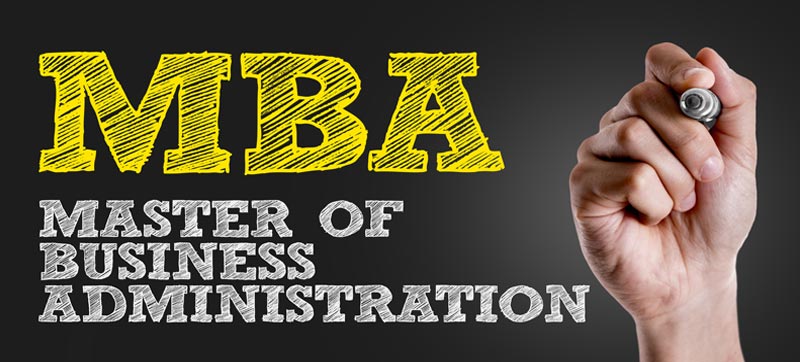An approach to business and development known as “fair trade” aims to increase equity in the global trading system. The fair trade movement thrives on conversation, transparency, and respect. In order to find markets and customers for their products, fair trade firms collaborate with farmers and artisans from developing nations that are both socially and economically underprivileged. Here, we’ll understand how a trade fair works, and we’ll also look at a range of trade fair products like coffee and fruits.
How Does Fair Trade Work?
Through a distinctive pricing structure, Fairtrade increases the amount of money going to farmers and workers, establishes and monitors strict standards at every stage of the supply chain, supports producers through local and regional expert networks, and increases demand for ethical products in nations like the US.
Why Is Fair Trade Necessary?
With over one billion people employed, agriculture is the single largest industry in the world. Nevertheless, many farmers only make $2 each day. This is insufficient. Many social and economic inequities that affect people in rural and agricultural communities are rooted in poverty.
This issue is not brand-new. Farmers experience injustices due of past injustices and inequities, many of which were established during the Colonial era and persist now.
What Are Fair Trade Products?
Products that have been traded fairly are those with the designation “fair trade” attached. This indicates that farmers, pickers, growers, and producers received just compensation. Sustainable farming methods are protected, and the ecosystem is as well.
Additionally, workers are guaranteed a secure workplace, and their rights be upheld.
These workers typically reside and work in poor nations. places where commonplace subpar wages and labor conditions go mostly undetected by wealthy nations that purchase their goods.
Fair trade products, however, are made by individuals who are taken care of and in a protected atmosphere.
Employees receive a fair wage for both their labor and their output. This rate must be less than the going rate. It guarantees that employees can sustain their families, communities, and themselves.
It’s critical that consumers have options in a world where major companies dominate. By purchasing fairly traded goods, you are helping the person who made them.
How to Locate Fair Trade Products
The Fairtrade Foundation produces some of the most well-known fair trade goods. Its distinctive green and blue FAIRTRADE mark might already be familiar to you.
Some fair trade methods, however, should be avoided. Sainsbury’s, for instance, sells its own Fair Trade tea.
Developing your expertise in label reading is the greatest approach to locating fair trade goods. Thankfully, it’s not as difficult as it seems!
Businesses who put fairly traded goods on our shelves want you to be aware of it. If a product is fairly traded, fair trade marks should be conspicuously displayed on the packaging.
Bananas, tea, coffee, and chocolate are common fair trade items that are excellent to start with. Here are ten to start with if you want to increase the number of fair trade items you purchase!
Most Popular Fair Trade Products
#1. Lucy Bee
The one-stop store for anyone stocking an ethical pantry is Lucy Bee.
They provide a range of essentials, including FairTSA-certified flour, salt, and spices. Brands are required by FairTSA to contribute to charitable causes.
Lucy Bee has already made contributions to numerous causes, including school meal programs, public wells, and many more.
#2. Karma Cola
West Africans chewed naturally caffeinated cola nuts for a daily pick-me-up long before the invention of carbonated beverages.
By paying the farmers in Sierra Leone a fair price for their cola, Karma Cola gives credit where credit is due.
Also, they contribute to neighborhood projects via the Karma Cola Foundation. You can still drink Karma’s equally moral lemonade or ginger ale if you don’t like cola.
Karma Cola is available in cola, lemonade, and ginger ale flavors.
#3. Liberation Foods
A modest bag of mixed nuts is equal to the number of nations in the UN. The Brazil nuts may originate in Bolivia, the macadamias from Malawi, and the cashews from Côte d’Ivoire.
It’s not surprising that only one UK nut company has been able to obtain certification for their Fairtrade goods given the complexity of the supply chain.
Even beyond what is required by fair trade, Liberation Foods. They give their small-scale farmers shares, and they currently own 44% of the business!
Liberation Nuts are available in salted and chilli and lime flavors. Moreover, they have crunchy peanut butter that is also Fairtrade.
#4. Piccolo Baby Food
You can never be too young to eat morally, so get your kids involved with Piccolo early on.
They are the first UK-based manufacturer of baby food to receive certification for their Fairtrade goods!
Yet ethics are a key component of the entire Mediterranean-inspired food at Piccolo. 10% of their profits are donated to charity, and all of their products are certified organic.
#5. QUINOLA MOTHERGRAIN QUINOA
Think again if you believe that quinoa is a guilt-free carb. For the Peruvian farmers who have grown it for themselves for millennia, the new Western hunger for quinoa has made it too expensive.
This elevated cost of living is taken into account while establishing prices at Quinola Mothergrain.
Also, they support sustainable and organic farming methods like those used in traditional farming.
#6. KALLO FAIRTRADE RICE CAKES
For almost 200 years, Kallo has been producing wholegrain, healthy cuisine!
By responding to all the most recent customer demands, they remain relevant. The Fairtrade Foundation just recognized its crispy-crunchy rice cakes as part of this.
Kallo’s cakes are a terrific find because rice is still a minor participant in Fairtrade. We enjoy them best when spread with Pip & Nut’s moral nut butter.
#7. CRU KAFE COFFEE PODS
One of the more well-known Fairtrade goods is coffee. Cru Kafe, however, elevates ethical coffee drinking.
Cru assists women in breaking into the overwhelmingly male-dominated coffee sector in addition to paying the Fairtrade minimum for coffee.
Cru’s ethical philosophy extends to the packaging as well. They are creating a fully biodegradable version of their recyclable pods.
#8. TIANA COCONUT OIL
Health experts have been recommending coconut oil for everything lately. Coconut oil is effective for a variety of tasks, including tooth cleaning and muffin filling.
Yet, these healthy fruits are frequently gathered in less than wholesome ways. Some farms employ tethered monkeys as picking labor.
One of the Fairtrade-certified coconut oils from TIANA is among the most ethical products available on the UK market. Additionally, they make investments in the Philippines’ farming communities’ infrastructure and educational systems.
#9. ZAYTOUN OLIVE OIL
Zaytoun is more than just a food business. Using trade rather than aid, it is a social venture that improves the lives of Palestinian farmers.
They naturally became the first producer of Fairtrade olive oil in the world in 2009.
The list of goods offered by Zaytoun resembles a mezze dish of ethical Palestinian treats. They sell almonds, hand-selected dates, and Fair for Life-certified organic maftoul, which is similar to couscous.
#10. WESTRAY CHUTNEY
Westray has historically subsisted on homegrown food and imports that are shelf-stable, like many other uninhabited islands. The creative way Westray Chutney approaches Fairtrade food may be influenced by this experience.
Using exotic, Fairtrade-certified ingredients like dates, pineapple, and ginger, they revive age-old recipes.
In 2007, Westray was recognized as a “Fairtrade Island” in part because of their work. Sounds like a wonderful location for a moral vacation!
What Is Fair Trade Coffee?
If coffee is Fair Trade certified, it has undergone supply chain auditing to ensure that it complies with strict labor and sustainability requirements.
How Coffee Becomes Fair Trade Certified
Coffee manufacturers and growers who sell their products through Fair Trade organizations must pay a minimum price that is higher than the market value of coffee. Coffee is certified as Fair Trade by a number of organizations, including Fairtrade America, Fairtrade International, and Fair Trade Certified.
Direct Trade vs. Fair Trade Coffee
The term “direct trade” refers to sourcing practices that bring coffee roasters as near as possible to interacting directly with the coffee farmer. Although paying coffee producers fairly is one of the ultimate goals of both Fair Trade and Direct Trade, the Fair Trade label is a third-party certification, whereas Direct Trade is more of a concept. If a bag bears the Direct Trade emblem, it has only been “certified” by the coffee roaster in accordance with their unique internal definition of Direct Trade coffee.
What Justifies the Use of Fair Trade-Certified Coffee?
The Fair Trade movement draws attention to the fact that growing coffee is a dangerous business in which farmers frequently struggle to make a living. A Fair Trade certification is one approach to guarantee that every farmer is paid a Fair Trade premium that is above the base commodity price, hopefully bringing them closer to earning a sustainable life as the coffee industry is now experiencing a pricing crisis.
Should You Only Purchase Coffee with a Fair Trade Certification?
The Fair Trade program is expensive, as is the case with all certifications, and not every small farmer, coffee producer, or producer group has the funds to take part in the certification procedure in order to obtain a fair trade label.
Whether through direct trade connections with roasters or more frequently in long-term relationships with coffee importers and exporters, many producers, especially of specialty-grade items like coffee, do discover enhanced rewards based on quality. Having said that, consumers who only purchase certified Fair Trade coffee ensure a specific level of payment at a particular point in the supply chain.
Fair Trade Movement
The Fair Trade movement is an international social movement with roots in the late 1940s that aims to support ethical and sustainable production and trade patterns as well as growth opportunities for small farmers, growers, and artisans who are socially and economically underrepresented in comparison to the market’s major players.
In Latin America and the Caribbean, CLAC supports more than a thousand Fairtrade-certified organizations as a member of the Fairtrade system. The World Fair Trade Organization (WFTO), an organization with which CLAC collaborates in the region’s Fair Trade Towns initiative, is another affiliation of CLAC.
There are currently a number of accreditations, seals, and organizations that support fair trade internationally. There are WFTO certificates and the Small Producers’ Symbol in addition to Fairtrade (SPP).
Each certification has its unique requirements, but they all aim to improve the market circumstances for small manufacturers, artisans, and agricultural workers.
The Fair Trade Advocacy Office (FTAO) is another organization that works on behalf of the Fair Trade movement and advances trade justice to enhance the standard of living for producers and workers in the developing world. The WFTO, the European Fair Trade Organization, and Fairtrade International collaborated to create the FTAO. The FTAO began as an unofficial means of cooperation between Fair Trade networks in 2004 and was formally established as an autonomous organization in 2010. The FTAO has a clear mandate to support European Union policies that advance just and fair trade.
The International Fair Trade Charter
The mission and core principles of the global fair trade movement are broadly described in the International Fair Trade Charter. Its three key goals are as follows:
- Facilitate collaboration between Fair Trade Organizations by linking their specific missions and strategies to the common philosophy of the movement, and promote collaboration with solidarity economy, organic agriculture movements, and others who strive for similar goals.
- Support the work of Fair Trade Organizations to educate consumers and citizens about the importance and impact of Fair Trade so that more people are inspired to join and support it.
- To make it easier for other people working with Fair Trade Organizations (in the public, academic, or private sectors) to understand the principles and practices that tie the whole movement together.
What Are The Main Purposes Of Fair Trade?
Fairtrade Standards guarantee more equitable terms of trade between farmers and purchasers, safeguard the rights of workers, and give producers the framework they need to establish successful farms and organizations.
What Are The Three Fair Trade Principles?
- Long-term connections in direct trade.
- Reasonable Prices are Paid.
- No forced, child, or other exploited labor is allowed.
Related Articles
- Instant Coffee Brands: The Best Low Acid & Decaf Brands(+Reviews)
- HOW TO START A COFFEE SHOP IN 2023: Ultimate Guide
- WHAT IS A FAIR CREDIT SCORE? How To Improve It
- The BEST CREDIT CARDS FOR FAIR CREDIT 2023 (Detailed Guide)
- FAIR VALUE ACCOUNTING: Definition & Benefits of Fair Value Accounting






